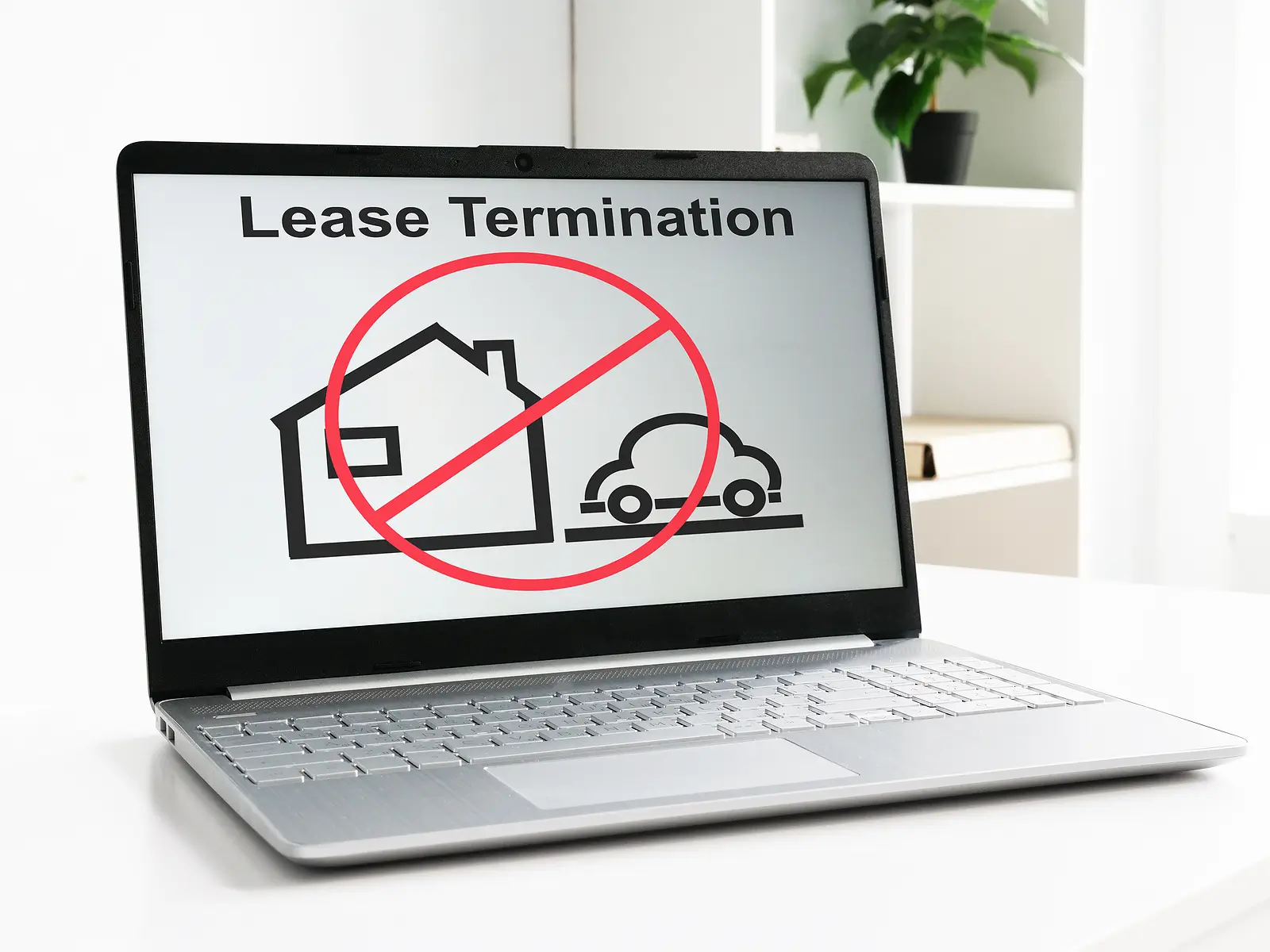Not every lease ends the way it should. A tenant might stop paying rent or break the lease agreement, putting the rental property at risk. So, when can a landlord legally terminate a lease?
Florida landlord-tenant law outlines specific situations in which ending a lease early is allowed. Landlords must follow proper notice rules and meet legal requirements under both Florida statutes and federal laws.
This article walks you through the key points of lease termination, from valid reasons to the process every landlord must follow. Keep reading.
Important Highlights
- Florida landlords can legally terminate a lease if the tenant fails to pay rent, violates the lease terms, or engages in illegal activities on the property.
- Proper written notice is required, such as a three-day notice for unpaid rent or a seven-day notice for other lease violations, before starting the legal process.
- Tenants entering active military duty are protected by the Servicemembers Civil Relief Act and may break the lease legally with written notice and documentation.
- Most leases include an early termination clause that outlines the circumstances under which a lease can be terminated early and may also include an early termination fee.
- Landlords must follow Florida landlord-tenant law and avoid landlord harassment to stay compliant and avoid legal trouble.
Legal Reasons a Landlord Can Terminate a Lease in Florida
So, when can a landlord legally terminate a lease? Under Florida statutes and Florida landlord-tenant law, a landlord can end a lease if:
1. The Tenant Violates the Lease Terms
If the tenant violates any part of the lease, the landlord may initiate lease termination. Common violations include failing to pay rent, subletting without permission, or engaging in illegal activities in the dwelling unit.
- For unpaid rent, the landlord can issue a three-day notice demanding payment or possession of the unit.
- For violations like continued unreasonable disturbance, property damage, or harboring unauthorized pets, the landlord must provide written notice giving the tenant seven days to fix the issue.
- If the tenant fails to comply, the landlord may proceed with legal action or eviction through small claims court.
2. Safety Violations or Public Health Concerns
If a tenant's behavior causes safety violations or public health risks to the rental unit, the landlord has the right to terminate the lease. This includes things like hoarding, poor sanitation, or blocking emergency exits. The landlord must provide proper notice and allow time for correction unless the situation is urgent.
3. The Lease Expires
A landlord is not required to renew a lease after it ends. For fixed-term leases, the landlord must wait until the lease term is complete. For month-to-month leases, Florida law requires a 15-day written notice before the next rental period.
4. The Tenant is Constructively Evicted
A tenant may claim to be constructively evicted if the landlord fails to maintain livable conditions. However, landlords must meet their obligations too. If they uphold the landlord’s responsibility under the lease and the tenant still refuses to comply, the landlord may pursue termination clause enforcement.
5. Tenant Enters Active Military Service
Under the Servicemembers Civil Relief Act (SCRA) and Florida statutes, tenants who are entering active duty or active military service may legally break the lease with proper documentation. However, this protection also allows landlords to end the lease if the rental is no longer available for military needs, like public health service or uniformed services housing.
Following the Legal Process
When a landlord needs to legally terminate a lease, certain steps must be followed to stay compliant with federal laws and Florida landlord-tenant law.
- Landlords must provide written notice before ending a lease. A three-day notice is required for unpaid rent. A seven-day notice applies to lease violations that can be corrected. A 15-day notice is used for month-to-month leases before the next rental period begins. Legal holidays do not count toward these notice periods. All notices must be written and properly delivered under Florida law.
- Most lease agreements include an early termination clause. This clause may allow the landlord to end the lease early if the tenant breaks the lease or sublets without approval. It often includes an early termination fee that the tenant agrees to pay.
- After the lease ends, the landlord must make a reasonable effort to re-rent the unit. If a new tenant is found, this may reduce the remaining rent the original tenant owes.
- When the tenant owes unpaid rent, causes damage, or violates the lease, the landlord can deduct the related costs from the security deposit. Florida law requires landlords to send a written notice with itemized deductions within 30 days after the tenant moves out.
Limits on a Landlord’s Right to Terminate a Lease
Not every problem justifies ending a lease in Florida. Landlords must follow the legal process carefully. Trying to evict a tenant without proper written notice is a violation of Florida landlord-tenant law. Changing the locks, shutting off utilities, or taking action because a tenant reported safety violations can also be considered landlord harassment.
These actions may violate the lease agreement and open the door to legal trouble. Even when a tenant is difficult or breaking a lease, landlord rights must be enforced the right way to avoid penalties under Florida statutes.
Special Cases: Active Military Duty and Lease Termination
Tenants on active duty may legally break a lease in Florida under the Servicemembers Civil Relief Act. To qualify, the tenant must provide a copy of their military orders, and the lease must have been signed before they entered active duty. The tenant is also required to give at least 30 days' written notice. In these cases, landlords are not allowed to charge early termination fees.
Tips for Landlords: Protecting Your Rental Property
To avoid headaches, landlords should:
- Use a clear lease agreement that includes an early termination clause
- Provide all notices in writing
- Document lease violations and attempts to resolve them
- Know the rights of tenants under Florida law
- Avoid confrontations that could be seen as landlord harassment
If a tenant refuses to leave or won’t follow the terms, the best route is always the legal one. Working with property management professionals can help ensure you stay compliant while protecting your rental property.
Know Your Rights, Follow the Rules
Understanding when a Florida landlord can legally terminate a lease is essential for avoiding disputes and protecting your rental property. Lease termination is allowed under Florida landlord-tenant law in cases like unpaid rent or illegal activity, but only when handled properly. Landlords must give written notice and follow the legal process while keeping clear documentation.
Handling lease issues can be stressful, especially when you're also juggling property maintenance and tenant concerns. Working with a property management team that understands Florida statutes can help you stay compliant and focused on long-term results.
JMK Property Investment manages more than 1,000 properties across Miami-Dade County and understands how to handle lease termination the right way. We help landlords stay compliant with Florida landlord-tenant law, from issuing proper notice to resolving violations and avoiding legal setbacks.
Call us today and let us help you protect your investment and keep your rental operations running smoothly.
Frequently Asked Questions
- Can a landlord end a lease early to renovate or demolish the property?
Not during a fixed-term lease unless the lease includes a termination clause that allows it. For month-to-month leases, landlords may end the lease with 15 days' written notice before the next rental period, even for renovations or demolition.
- Is a landlord allowed to terminate a lease for personal use of the rental unit?
Yes, but only at the end of the lease term or with proper notice under a month-to-month agreement. Florida law does not allow landlords to remove tenants mid-lease for personal occupancy unless the lease agreement includes that option.
- What happens if a tenant vacates without giving notice?
If the tenant breaks the lease and leaves without notice, they may still owe rent and fees. The landlord can deduct from the security deposit and take legal action to recover additional rent owed, but must also attempt to re-rent the rental unit.



